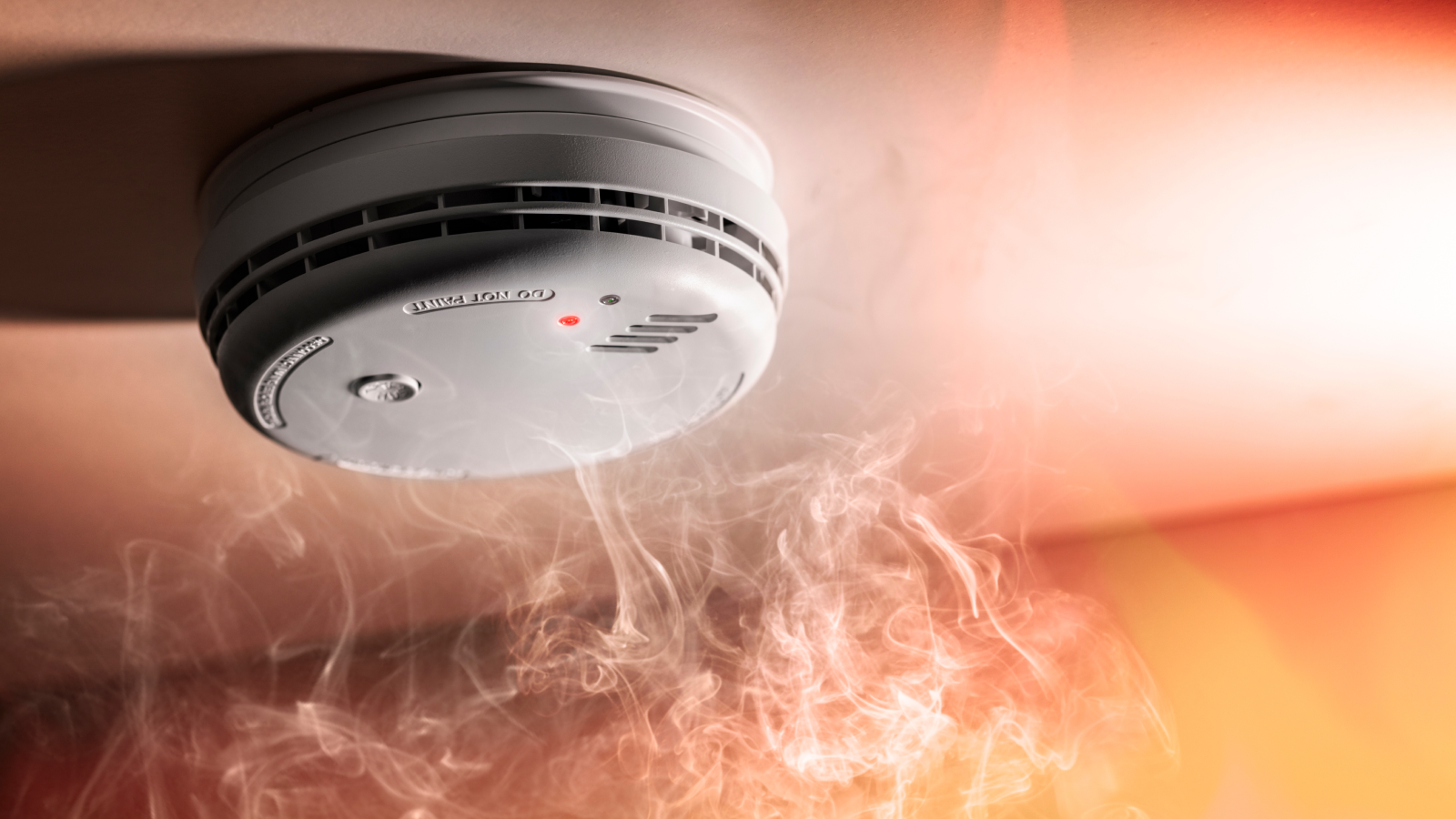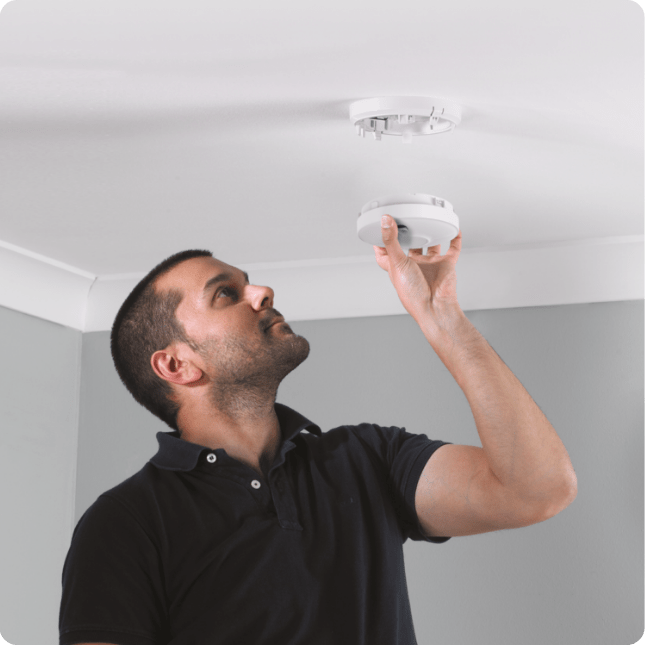
1. Low Battery Power
One of the most common reasons for false smoke alarm triggers is a low battery. Smoke alarms typically emit a short chirp or beep to alert you when the battery is running low. If you haven’t changed the battery in a while, this could be the cause of the false alarms.
Solution: Replace the battery in your smoke alarm, and be sure to test the unit afterward to ensure it’s working properly. Regularly changing your smoke alarm’s battery—at least once a year—is a good practice to avoid unexpected false alarms. For more on smoke alarm maintenance, visit the National Fire Protection Association (NFPA).
2. Dust or Dirt Buildup
Smoke alarms can be sensitive to dust and dirt. Over time, debris can accumulate inside the unit, causing it to malfunction and trigger false alarms. This is particularly common in smoke alarms located near construction areas, in kitchens, or near high-traffic areas where dust levels tend to be higher.
Solution: Carefully clean your smoke alarm using a vacuum cleaner or compressed air to remove dust or debris. Make sure to follow the manufacturer’s instructions to avoid damaging the sensor.
3. High Humidity or Steam
Smoke alarms are designed to detect smoke particles in the air, but they can sometimes confuse humidity or steam with smoke. If your smoke alarm is installed near a bathroom or kitchen, high humidity levels or steam from showers and cooking can cause it to go off unexpectedly.
Solution: Ensure that your smoke alarm isn’t placed too close to areas with high humidity or steam. Consider moving the alarm or improving ventilation in areas prone to steam, like bathrooms or kitchens. For tips on proper placement, check out guidelines from the CPSC.
4. Cooking Fumes
Cooking can often trigger false smoke alarms, especially when frying, grilling, or broiling at high temperatures. Smoke or fumes from burnt food can easily set off the alarm, even if there’s no fire risk.
Solution: Keep your kitchen well-ventilated by using an exhaust fan or opening windows while cooking. Avoid placing smoke alarms too close to your kitchen to prevent false triggers.
5. Electrical Issues
Hardwired smoke alarms are connected to your home’s electrical system, and any issues with the wiring, such as power surges or outages, can cause them to go off. Electrical malfunctions can disrupt the system, resulting in false alarms.
Solution: If you suspect an electrical issue, it’s best to have a licensed electrician inspect your smoke alarm’s wiring. Regular maintenance and inspections can prevent electrical faults from causing false alarms.
6. Insects or Small Bugs
Believe it or not, insects or small bugs can find their way into your smoke alarm and trigger a false alarm. They can crawl into the sensor chamber, causing the alarm to detect particles and go off unexpectedly.
Solution: Open the smoke alarm and check for any small insects inside. Clean the unit carefully, and consider using insect repellent near your smoke alarms to deter bugs from entering.
7. Expired Smoke Alarm
Smoke alarms have a lifespan of about 10 years. After this period, the sensors may begin to malfunction, leading to false alarms. If your smoke alarm is more than a decade old, it may be time to replace it.
Solution: Check the manufacturing date on your smoke alarm and replace it if it’s more than 10 years old. Always install new alarms following the manufacturer’s instructions for optimal performance.
When to Call Citywide Mold Mitigation for Help
If none of the above solutions fix your smoke alarm issue, it’s possible that other underlying factors, such as mold or water damage, are affecting your home’s air quality and triggering false alarms. Mold can impact both your home’s electrical system and the functionality of sensitive devices like smoke alarms.
Citywide Mold Mitigation specializes in mold inspection and remediation services, helping homeowners detect hidden issues like mold that can cause false alarms or even health problems. If you suspect mold is at the root of your smoke alarm problems, contact us today for a thorough inspection and expert remediation services.

FAQ
| Question | Answer |
|---|---|
| Why is my smoke alarm going off with no smoke present? | Common causes include low battery power, dust buildup, steam, cooking fumes, electrical issues, or an expired smoke alarm. Inspect the alarm and fix the issue to stop false triggers. |
| Can dust cause a smoke alarm to go off? | Yes, dust or dirt buildup inside the smoke alarm can cause it to malfunction and trigger false alarms. Regularly cleaning your alarm can help prevent this issue. |
| How often should I replace the batteries in my smoke alarm? | You should replace the batteries in your smoke alarm at least once a year, or sooner if the alarm begins chirping to indicate a low battery. |
| Why does my smoke alarm keep going off after I cook? | Cooking fumes or smoke from burnt food can trigger the alarm. Ensure proper ventilation while cooking and consider moving the smoke alarm farther away from the kitchen. |
| When should I call a professional for smoke alarm issues? | If the problem persists despite troubleshooting, or if mold or other home damage might be affecting the alarm, contact a professional like Citywide Mold Mitigation for an inspection. |
If you’re experiencing ongoing issues with your smoke alarms or suspect mold might be contributing to the problem, don’t hesitate to contact Citywide Mold Mitigation for expert help. We’re here to make sure your home is safe and mold-free.

